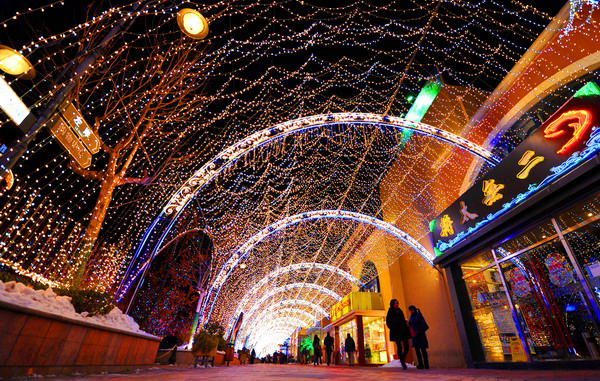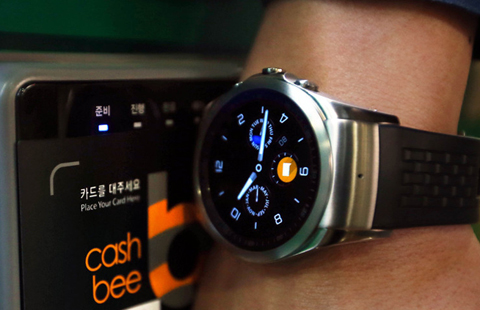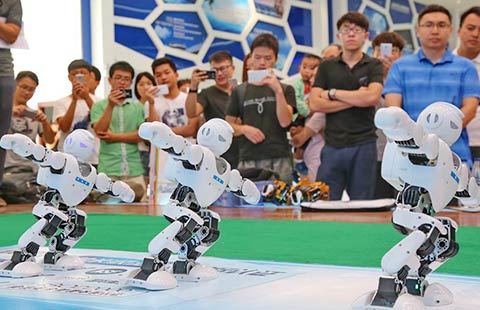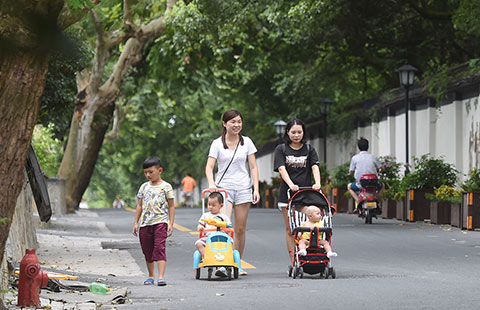Retail therapy: more than shopping
By Gan Tian (China Daily) Updated: 2013-01-10 10:13"I would like this shopping mall to be more 'cultured', featuring training courses on different subjects, and a bookstore," Zhu says.
The growing popularity of e-commerce and other online platforms are the main reasons that shopping malls have to innovate to attract consumers back to physical shopping centers.
|
 Solana Lifestyle Shopping Park is another mega shopping mall in Beijing. [Photo / China Daily] |
"In the past five years, the online business platforms have taken a huge portion of revenue from shopping malls, and big department stores," Shayne's Zhu says.
With the gradual change in lifestyles, shopping malls are turning into a place to meet people.
"People still need to communicate. It is a basic need. In shopping malls, you get to savor the 'atmosphere', a feature absent online," Zhu stresses.
The mother Wang Yuandong says under the family planning policy, most children do not have many playmates like before when children had brothers and sisters as companions. At the same time, living in high-rise apartments means children do not have much space to play in the house.
She says most parents her age bring their children to childcare centers on weekends, which provides play areas and toys for children.
For retiree Sun Jianguo, shopping malls are "too modern". He does not shop in such mega centers. "The most entertaining thing here is to take a walk with my wife," he says.
Contact the writer at gantian@chinadaily.com.cn.
Also
Evolution of shopping in China
Shopping malls to gain luster in China
China to have more than 7,000 malls by 2025
Suburban malls steal trade from city centers
Beijing street to be duty-free haven
Beijing marks New Year with shopping spree
E-commerce boom brings shopping revolution
HK to retain No 1 shopping spot: report
- I am in Hangzhou: Freelance photographer Rodolphe
- China's G20 host city expands underground
- Top 5 smartwatches in customer satisfaction
- China to formulate accountability system for SOE managers
- Innovation event for college students held in Hebei
- Govt to offer 'big stage' for private investors
- China Telecom reports higher profits in first half on surging 4G users
- China's top economic planner drives PPP project growth


















